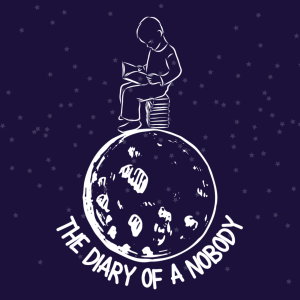
T.S. Eliot - Burnt Norton Pt. 2
Written in: Published in 1943 in the 4 Quartets of T.S. Eliot. (source: poemanalysis.com, 2022)
Theme:
The main theme of ‘Burnt Norton is the nature of time, its relation to salvation, and the contrast between the experience of the modern man and spirituality. The lyrical voice meditates on life and the need to subscribe to the universal order. The poem’s structure and form are similar to T. S. Eliot’s The Wasteland, as several fragments of poetry are put together and set as one. The rhyme and meter rely on the repetition and circularity of language, which corresponds to the conception of time introduced in the poem. Light and dark, movement and stillness, and roses are some of the motifs that appear in ‘Burnt Norton’. (source: poemanalysis.com, 2022)
Poem:
Garlic and sapphires in the mud
Clot the bedded axle-tree.
The trilling wire in the blood
Sings below inveterate scars
Appeasing long forgotten wars.
The dance along the artery
The circulation of the lymph
Are figured in the drift of stars
Ascend to summer in the tree
We move above the moving tree
In light upon the figured leaf
And hear upon the sodden floor
Below, the boarhound and the boar
Pursue their pattern as before
But reconciled among the stars.
At the still point of the turning world. Neither flesh nor fleshless;
Neither from nor towards; at the still point, there the dance is,
But neither arrest nor movement. And do not call it fixity,
Where past and future are gathered. Neither movement from nor towards,
Neither ascent nor decline. Except for the point, the still point,
There would be no dance, and there is only the dance.
I can only say, there we have been: but I cannot say where.
And I cannot say, how long, for that is to place it in time.
The inner freedom from the practical desire,
The release from action and suffering, release from the inner
And the outer compulsion, yet surrounded
By a grace of sense, a white light still and moving,
Erhebung without motion, concentration
Without elimination, both a new world
And the old made explicit, understood
In the completion of its partial ecstasy,
The resolution of its partial horror.
Yet the enchainment of past and future
Woven in the weakness of the changing body,
Protects mankind from heaven and damnation
Which flesh cannot endure.
Time past and time future
Allow but a little consciousness.
To be conscious is not to be in time
But only in time can the moment in the rose-garden,
The moment in the arbour where the rain beat,
The moment in the draughty church at smokefall
Be remembered; involved with past and future.
Only through time time is conquered.
Credits: T.S. Eliot 1943 - Four Quartets and poemanalysis.com, 2022
More Episodes
 2024-11-09
2024-11-09
 6
6
 2024-11-04
2024-11-04
 8
8
 2024-04-23
2024-04-23
 73
73
 2024-03-30
2024-03-30
 105
105
 2023-07-16
2023-07-16
 171
171
 2023-01-29
2023-01-29
 142
142
 2023-01-22
2023-01-22
 76
76
 2023-01-15
2023-01-15
 72
72
 2023-01-08
2023-01-08
 92
92
 2022-12-18
2022-12-18
 72
72
 2022-12-11
2022-12-11
 90
90
 2022-11-27
2022-11-27
 83
83
 2022-11-20
2022-11-20
 138
138
 2022-11-13
2022-11-13
 100
100
 2022-11-06
2022-11-06
 139
139
 2022-10-30
2022-10-30
 210
210
 2022-10-23
2022-10-23
 540
540
 2022-10-16
2022-10-16
 1.4k
1.4k
 2022-10-09
2022-10-09
 108
108
Create your
podcast in
minutes
- Full-featured podcast site
- Unlimited storage and bandwidth
- Comprehensive podcast stats
- Distribute to Apple Podcasts, Spotify, and more
- Make money with your podcast
It is Free
- Privacy Policy
- Cookie Policy
- Terms of Use
- Consent Preferences
- Copyright © 2015-2024 Podbean.com





